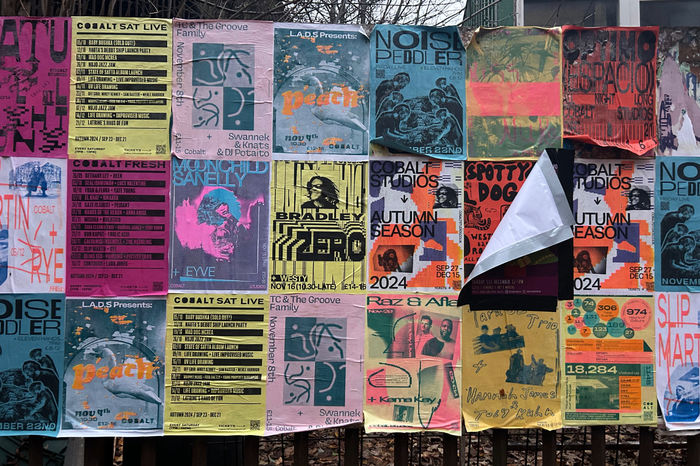“Conducting is a unique thing and not something that really has a parallel”: an interview with the CUO’s conducting scholar
Archie Glover meets with Jao-Yong Tsai and sheds light on life as a university conductor

Following seemingly endless carol services, midnight masses, and Christmas Day Eucharists, I finally had the time to sit down with Jao-Yong Tsai, this year’s Cambridge University Orchestra (CUO) conducting scholar. I wanted to shed some light on what his role involves and expose our readers to a side of music-making not often talked about. Classical music often takes the back seat in the Cambridge musical space – a peculiar phenomenon for a city so rich with some of the UK’s finest classical talent. Jao-Yong, in addition to his role within CUO, often takes on projects outside of this as a conductor, choral singer, violist, and sometime organist.
I started by asking Jao-Yong what his role as assistant conductor for CUO encompassed. He explained: “The University Orchestra works with professional guest conductors – professional musicians who come from outside the university to work with us – so before they arrive it’s my job to rehearse the orchestra and lay the foundations so that when the professional arrives they can get into the real detail and the much more interesting stuff.”
"There’s already musical, artistic intent in that preparatory stage – it’s incredibly interesting as a conductor"
I followed up by asking about his thoughts on seemingly not having the opportunity to do the ‘fine-tuning’ necessary for a concert performance. Jao-Yong replied: “It’s technically not in my job remit! But the process remains collaborative; once I have laid the foundations I will continue to talk to the guest conductor, and depending on who it is I will often still have some musical input. There’s already musical, artistic intent in that preparatory stage – it’s incredibly interesting as a conductor.”
Jao-Yong was involved in two CUO projects this term, with two different professional conductors. I asked how his preparation differed for each: “My process for preparing is much the same – I learn to conduct the score, I think about what would potentially cause issues with the orchestra, what will need more work, and then I’ll normally have a Zoom call with the conductor or something before the project starts. The difference is the size of the orchestra and the type of repertoire we’re covering. I’m not going to get into too many details of what each conductor is like to work with – just to avoid controversy!”
Of course, each conductor has their own unique style and preferences. As Jao-Yong says: “Some conductors might like to take a step back and let me conduct some of the rehearsal so they can listen to it from a distance.” In contrast: “Other conductors like to be very hands-on with the orchestra at all times and then very occasionally look back and ask, ‘Does this sound ok?’”
Unlike other ensembles in the University, CUO doesn’t rehearse weekly, instead preferring to have intense rehearsal sessions in the week of the concert. I was intrigued as to how Jao-Yong and the orchestra manage this rather fierce commitment. He replied: “It’s a large time commitment, but it’s one that we make work.”
"When I’m conducting I’m trying to make my conducting as good as possible, but there’s also a didactic element to it"
Expanding further, Jao-Yong explains: “Because we have the dates and timings of rehearsals quite a long way in advance, it means we can plan things around them. I can sort of isolate a period of about a week and a half where I will take on fewer other concerts and do my work before the current project starts and after it finishes, so that during the rehearsal periods themselves I’m at a kind of ‘minimum stress’.”
I asked Jao-Yong if there was anything about conducting he would want people to know. It’s perhaps an aspect of music-making that often goes overlooked and underappreciated. “Conducting is a unique thing and not something that really has a parallel. Being a conductor is this interesting balance of being a musician that’s focused on themselves and their own improvement – when I’m conducting I’m trying to make my conducting as good as possible – but there’s also a didactic element to it. As an assistant conductor, a lot of my job is training the orchestra to respond to things so that when the professional arrives, things happen smoothly.”
I finished by asking Jao-Yong about his upcoming projects for Lent 2025. He said: “The next project coming up at the beginning of term is the combined concert between CUO, the University Symphony Chorus, and the University Chamber Choir. It’ll be taking place in King’s College Chapel on the 25th of January and features music from Judith Weir, Saint-Saëns, and Poulenc.”
By all accounts, it promises to be a great show. Next time you find yourself at a classical concert, perhaps take a moment to reflect and appreciate the work that goes on behind the scenes – by both the orchestra and the tenacious yet oft-forgotten conductor.
Want to share your thoughts on this article? Send us a letter to letters@varsity.co.uk or by using this form.
 News / Caius mourns its tree-mendous loss23 December 2025
News / Caius mourns its tree-mendous loss23 December 2025 News / Clare Hall spent over £500k opposing busway 24 December 2025
News / Clare Hall spent over £500k opposing busway 24 December 2025 Comment / The ‘class’ of Cambridge24 December 2025
Comment / The ‘class’ of Cambridge24 December 2025 Interviews / Politics, your own way: Tilly Middlehurst on speaking out21 December 2025
Interviews / Politics, your own way: Tilly Middlehurst on speaking out21 December 2025 Comment / Yes, I’m brown – but I have more important things to say22 December 2025
Comment / Yes, I’m brown – but I have more important things to say22 December 2025








